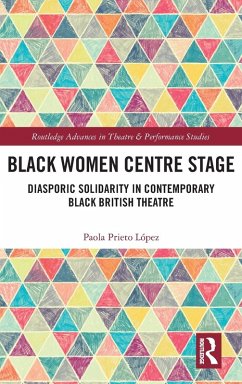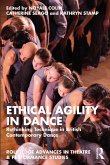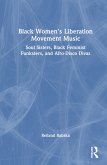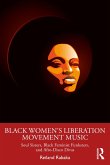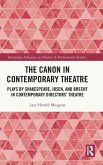This book examines the political alliances that are built across the diaspora in contemporary plays written by Black women playwrights in the UK.
Through the concept of creative diasporic solidarity, it offers an innovative theoretical approach to examine the ways in which the playwrights respond creatively to the violence and marginalisation of Black communities, especially Black women. This study demonstrates that theatre can act as a productive space for the ethical encounter with the Other (understood in terms of alterity, as someone different from the self) by examining the possibilities of these plays to activate the spectators' responsibility and solidarity towards different types of violence experienced by Black women, offering alternative modes of relationality. The book engages with a range of contemporary works written by Black women playwrights in the UK, including Mojisola Adebayo, Theresa Ikoko, Diana Nneka Atuona, Gloria Williams, Charlene James or YusraWarsama, bringing to the fore a gendered and intersectional approach to the analysis of the texts.
This book will be of great interest to students and scholars in contemporary theatre, gender studies and diaspora studies.
Through the concept of creative diasporic solidarity, it offers an innovative theoretical approach to examine the ways in which the playwrights respond creatively to the violence and marginalisation of Black communities, especially Black women. This study demonstrates that theatre can act as a productive space for the ethical encounter with the Other (understood in terms of alterity, as someone different from the self) by examining the possibilities of these plays to activate the spectators' responsibility and solidarity towards different types of violence experienced by Black women, offering alternative modes of relationality. The book engages with a range of contemporary works written by Black women playwrights in the UK, including Mojisola Adebayo, Theresa Ikoko, Diana Nneka Atuona, Gloria Williams, Charlene James or YusraWarsama, bringing to the fore a gendered and intersectional approach to the analysis of the texts.
This book will be of great interest to students and scholars in contemporary theatre, gender studies and diaspora studies.

